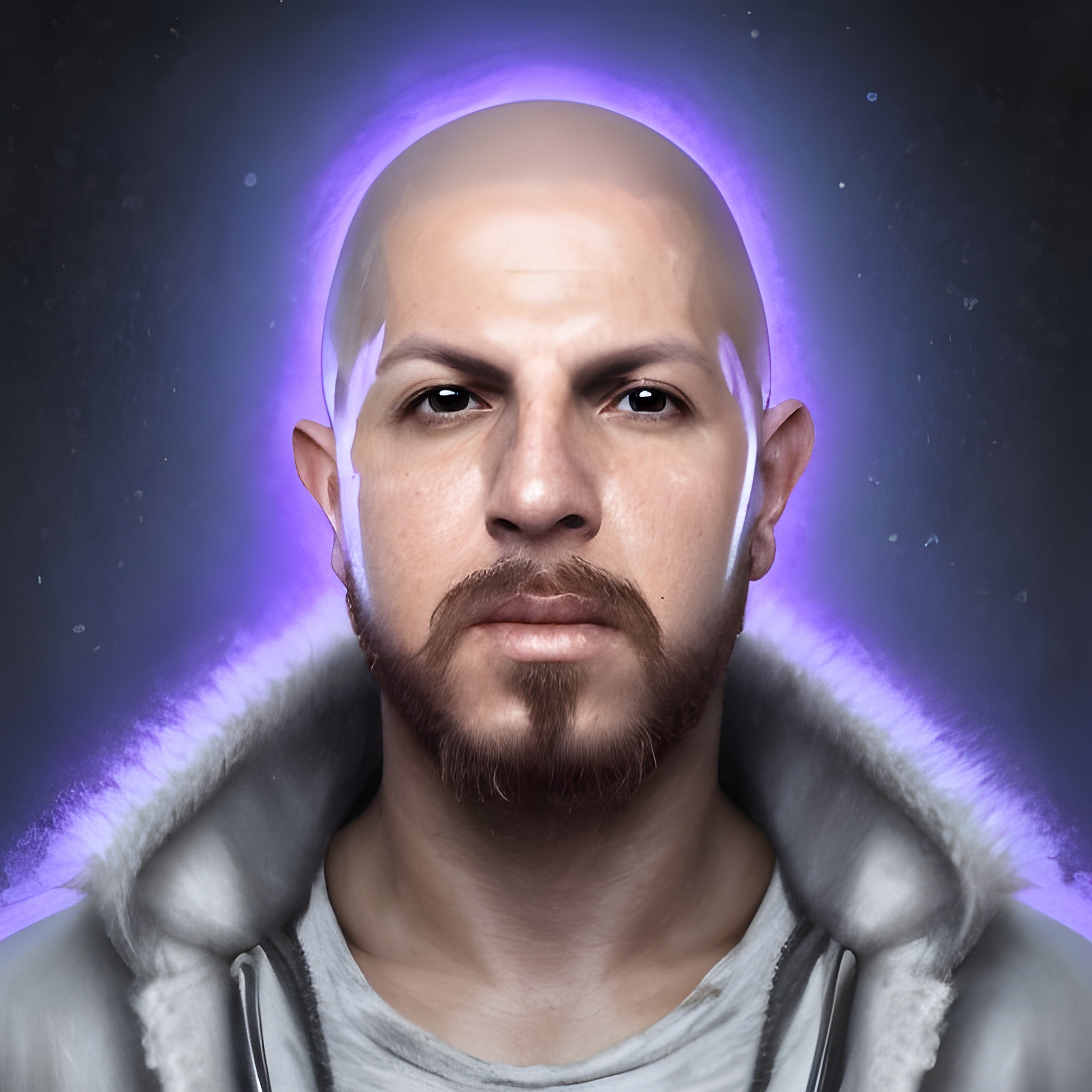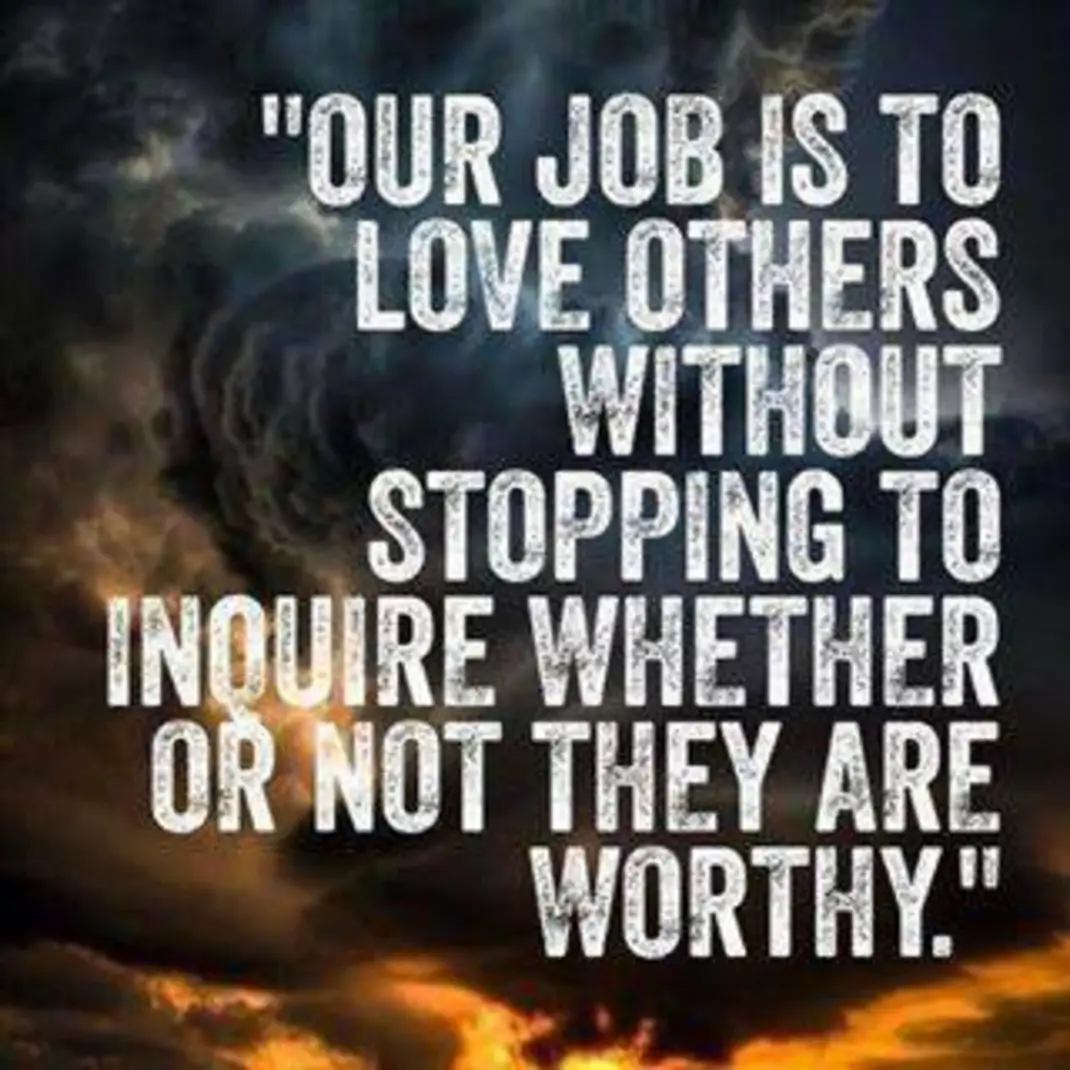Hello,
Lately I have been overwhelmed with my schedule, finances and social life. I am always trying to improve my mental health. With all of this stress I am considering therapy, mainly for someone to talk, to process all my thoughts, and maybe help me develop ideas or come up with strategies to cope better. I have ADHD, Autism, and some other things if that helps anyone relate.
I have three main questions:
Has therapy helped you enough to be worth the time?
Is it very difficult to find a therapist you mesh with?
How do I find a therapist? From a doctor’s referral? Online service? Through insurance? (I live in the United States.)
Any experience or advice you can provide would be greatly appreciated!
Edit: I just wanted to thank everyone for your help and support! I hope everyone is doing well and has seen positive changes. And I hope all these replies help other people besides myself. I’m feeling more positive and hopeful toward finding the right therapist. Your kindness is appreciated!
Just want to say, yes. A thousand times yes. Therapy is worth it a million times over. If you don’t find the therapist you mesh with immediately, don’t lose hope. Trust your gut and keep looking.
Once I found the right therapist, things really improved in my life and I was able to make sense of things that I had previously been unaware of.
Good luck!
I know there’s technically no correct answer. But this is the correct answer 🫶
agreed
💯
Thanks for your help! I will try and trust my gut. I feel a little nervous that I may try to convince myself that it’s helping even if I don’t find the right therapist. But I will try to keep evaluating honestly.
If you think you need it, likely yes but finding the right therapist who meshes with you is absolutely crucial. You have to do your research and also understand that with the world essentially on fire that lots of therapists are booked up. I’ve spoken to people who have just not worked with me personality wise and others who I’ve thought were just shitty.
https://www.psychologytoday.com/us is a good start. You can sort by what you’re looking for and who might take your insuance. A tip: create a spreadsheet with who you’ve contacted, their response and whether they offered a referral. Treat it like job hunting. You’re going to need to reach out to a lot of people. Most will get back to you within a business day, but it’s been my experience that nearly 3/4ths of therapists on that site who say they have openings do not in fact have openings. Be picky and trust your gut on your initial consult.
Best of luck
Thanks for the website and tips! It really helps take the stress off of the search itself.
The searching is the worst part. Be methodical so you don’t get overwhelmed!
Yeah, I’ve been applying to software developer jobs lately. This all sounds very familiar. At least I have a system. Haha!
I’ll try to take it one step at a time.
My last therapist disappeared into the redwoods after doing a hit of acid laced with DMT. Seeing as he’d been growling like a tiger all night as part of some Hindu shaman thing he’d picked up on the streets of New Delhi, it was kind of a relief. All that was left behind was his kilt. Sometimes I wonder where he is and whether or not the Hell’s Angels were really hunting him.
True story. Oregon can get wild in the backwoods.
That being said, you probably could do without my advice on finding therapists.
I have no idea if I should be laughing at this, so I suppose I will. I’m sorry for your loss.
Lmao - you’re the first person I’ve ever told this story to who considered it a loss. I figure that there are some things you hold on to in this world, but sometimes you just have to let your therapist fly free…
…especially if the Hell’s Angels are involved.
Haha! That story is one hell of a wild ride. The only reason I believe it is because you mentioned Oregon.
Did you go to therapy with hunter Thompson by any chance?
While it wasn’t for me, therapy is worth for the most people. You can learn new strategies and explore the cause of your problems and how to tackle them. Most people really benefit from it.
I am completely therapy resistant, several tried and gave up on me. This can be the case for you, but that is very unlikely. I am just a psychopath who doesn’t accept authority, that makes it impossible to do any therapy.
Thanks for your input. It’s good to hear both sides. I wish you all the best, and hope you find your way all the same.
In my case it’s unaffordable. It’s just $15 per visit, but it’s a lot in my country. And I’m not particularly rich either
Yeah, massive debt is not helping me at the moment. I’m sorry to hear that. It is unfortunate, especially because not being able to afford it is definitely not helping mental health either. I hope you find a solution out there.
To share my experience concerning your questions.
Has therapy helped you enough to be worth the time?
Definitely, but with very varying results, and also with the caveat that my time in phases of deep depression is almost worthless because I can’t really use it for myself or even productively for others either. The varying results part leads to
Is it very difficult to find a therapist you mesh with?
Yes, I’ve been in all kinds of therapies, from analytic to purely psychiatric, have gotten a ton of different diagnoses since my early teens, and results have been sometimes disheartening and sometimes lifechanging in positive ways. My advice is: Don’t be afraid to switch therapists if after a few sessions you notice it’s not working out, and try to in advance research as well as possible if there are any specialised in cases like your own (seeing as you already have some diagnosis to work with).
With the last point, I can’t really help you much, no idea how it is in the US. Here, you can usually get lists with regional therapists that are covered from your insurance. Also there are more and more online platforms, although I couldn’t help you with US-based ones.
Here’s hoping you will find someone that can help you, and even if that doesn’t happen, that you will be able to manage to get through the curret tough times. Be well and take care.
Thanks! This helps me paint a better picture of searching for one. I will try to do my research. I definitely have more diagnoses I forgot to mention in this post. I’ve spent a long time working on all of them. At least the initial shock is over with and I’ve had time to work on all of them to an extent. I just need to take the next steps now.
Thanks for your help and your kind words. I will figure things out regardless, but I am very hopeful now that I might receive some help.
I unfortunately can’t tell you how to find a therapist, because I am not from the US, but to the question if it is worth it:
Absolutely! For me it is still one of the best decisions I took in my life and it helped me so much in fighting my my depression and anxiety.
Honestly I’ve almost tried to find a therapist many times. Now I feel that it’s really something I need right now.
I’m glad it worked out for you. Thanks for the encouragement!
I think it can be very beneficial, it might take a while to find someone you work well with, so don’t give up if you don’t like the first person. I recommend trying Psychology Today’s therapist finder online!
Thank you for your suggestion and encouragement!
Somewhat related, Lemmy users really do seem friendly, and I am enjoying posting for once instead of just lurking!
I was nice over on Reddit too, lol.
But I’m glad you’re enjoying your experience here!
Yes yes yes yes yes.
I’m a 32 yr old male with ADHD, chronic pain, past trauma, sleep issues, low testosterone, and haven’t had much stability in my life for the last 5 years. I don’t think I could have gotten through it without therapy. A good therapist will help you work through your thoughts and emotions and feelings and give you the tools to be able to function and get through those times when you are overwhelmed.
Please feel from to reach out if you want to talk more. I’ve been where you are with deciding what to do and would love to help.
In the mean time I have a couple books I would recommend that really changed my perspective.
Man’s Search for Meaning
https://www.amazon.com/Mans-Search-Meaning-Viktor-Frankl-ebook/dp/B009U9S6FI
Extremely powerful, written about the human experience from a survivor of Auschwitz.The Untethered Soul
https://www.amazon.com/Untethered-Soul-Journey-Beyond-Yourself/dp/1572245379
Probably opened my eyes more than any other book and helped me immensely with the day to day stuff.Iron John
https://www.amazon.com/Iron-John-Book-about-Men/dp/0306824264
(Not sure of your gender) This book is about what it is to grow into a man. Not a manly man or traditional man or anything like that, but a real man who embraces his masculinity and femininity. Talks about how we need something more than our parents to grow. I think it’s still a amazing read no matter what gender you are because it does help make sense of why so many men are the way that they are.Thanks for the book suggestions! I will check them out.
I forgot to mention that I also have sleep problems from PTSD. Sounds like we can relate on more than a couple things.
Yes I definitely think so! Feel free to reach out any time:)
Sounds like it is worth exploring, at the very least. When I found the right therapist it was like scratching an itch I didn’t knowI had.
Good luck to you, friend-o.
Yeah, every time I talk with friends or family I feel better, and so I don’t think I need it. But then of course I would eventually feel off again. I’ve finally realized that being able to do that more consistently might help me feel better more consistently.
It depends. Talk therapy works for a lot of people, but not all. But, it’s almost always a good starting place. If you feel like you aren’t making any progress with your therapist, you can always tell them that, and they can help you explore other options outside of psychotherapy. They could recommend a psychiatrist who can try medical therapy options with you. From there, if you still feel that you aren’t making progress, your psychiatrist can possibly recommend medical operations such as ECT if you’re still having trouble.
It doesn’t always have to take this path, though. But I can absolutely recommend therapy as a launch pad.
For my own anecdote, I went to a therapist for several months, and after a while I felt like I was reaching a brick wall. And not due to any trouble with the therapist, but because I felt like I had milked therapy for all I could. He was able to refer me to a psychiatrist who then worked with me on finding an appropriate medication and we explored other venues from there. While I basically maxed out the gains I could get from therapy, I was still able to learn a lot of really useful things during that process anyway, which are still helpful to me today. So don’t go into it with the expectation that you’ll find yourself cured, but go into it with an open mind.
Thanks for the advice!
Short term I am just looking for help coping with huge amounts of stress. If I can find some effective strategies to use on my own then I might be okay. I feel I’ve already made a ton of progress in other areas of my mental health.
It is somehow comforting to know that if therapy doesn’t solve all my problems then I don’t need to feel like I “failed” therapy.
One resource I can recommend is Dr K on YouTube. He runs a channel called Healthy Gamer, and while his community is focused on gaming and gaming-related mental health issues, I think it’s still pretty solid material even if you’re not into games at all. For what it’s worth, the extent that he’ll do anything gaming-related in his videos is maybe make one or two gaming references per video, at most.
He goes really in depth into the psychology and neurology of various conditions and provides useful advice on how to mitigate those issues, yourself. He also does some really interesting talks and interviews with streamers and other content creators. He also usually provides links to different sorts of resources and further reading for different subjects, too. Definitely worth checking out, IMO. https://www.youtube.com/@HealthyGamerGG
Sweet, thanks! I’m a casual gamer, but that sounds like a great resource. I’ll check it out.
Even just having reminders or something to ground me in the meantime will really help I think.
Everyone keeps telling you “it depends on the therapist” - because there are a lot of bad and unqualified therapists. Find yourself a “clinical psychologist.” The standard of education required to hold that title is far greater than “therapist”.
Long story short - it depends. But, with a therapist you vibe with - abso-fucking-1000x-lutely!
Can only answer your firts question as I do not live in the USA. I would compare therapy to chiropractic. You suffer everyday from a pain that prevents you from living your life to it’s fullest, being a knee pain, back ache or anxiety, ocd, depression… Sometimes you only need a short series of sessions to feel better, sometimes you have to exercise at home to reinforce what you’ve done with your therapist and sometimes you need to see them twice a week for a longer period of time because the suffering is unbearable. I would not say that you find definite answers to your pain because it is in you and most certainly will never disappear completely. I see mental suffering as a condition that is the result of hereditary traits and events in your life, exactly like having bad joints or fragile bones. Good luck out there and take care of yourself.
Thanks for that analogy. That really helps me visualize how the process might look. I’ve gone to physical therapy and now I’m imagining that is will become easier over time to maintain any traction gained at the start of therapy, if that makes sense.
From my experience:
-
It depends on the therapist. Ultimately what I got out of it is heavily based on what I put into it. If I just showed up and said everything was fine when it wasn’t, that obviously didn’t help. If I didn’t do the “homework”, that didn’t help. If I was bullshitting and the therapist knew I was and didn’t call me on it, that didn’t help. At one point I was struggling with religion, and having a therapist say I just needed to pray more didn’t help.
-
It can be, but if you have an understanding of what you’re looking for it can be helpful. For example:
- I prefer therapists who follow the school of cognitive-behavioral therapy (CBT) over almost any other kind. If they follow psychoanalytical methods I probably won’t mesh with them. If you like a particular school, go with that.
- Are you religious or does it play a big role in your life? If not, it might be useful to find one that is friendly to atheists or doesn’t mention religion or spiritual guidance as a big part of their approach.
- You mention you have ADHD and autism, finding therapists with focus/experience on those can be helpful. Same if you need help with a particular topic like familial relationships, sex, addiction, etc.
- Are you a part of any other groups? If you’re not straight, going to a therapist that “supports diversity” or has similar sentences in their bio can help.
- Are you more open over video? If so, a therapist that does video visits may help.
- My insurance covers mental health benefits, so I go to their site and find a provider. They usually have filters for main approach, specialties, etc. You should double check they’re taking new patients and take your insurance because sometimes that changes fast. I usually find a few I’m interested in and email them asking any questions. If we both seem ok, we move forward and schedule something.
Don’t give up if you don’t find someone immediately, it can take a few to find one you vibe with. Best of luck!
Thank you for such a thorough response!
I’m glad you mentioned a couple different methods therapists might use. I didn’t think of looking for traits that could be categorized, and I agree that I would probably also benefit more from CBT type therapy where I have some tool to implement daily.
I didn’t think about religion as a factor. I am not religious and I do feel it would be unhelpful to add that into the discussion as it might complicate an already long list of thoughts I have. That is a great suggestion.
All these specifics are really helping me form a picture of what types of therapists may be available.
Thank you so much for your help!
I just wanted to add on to this great advice, because your specifically asked if it was worth it. The things I learned from Cognitive Behavior Therapy more than 20 years ago have stuck with me all my life and prevented me from falling back into old, toxic patterns of thinking.
So yes, for me at least it was definitely worth it.
That’s great to hear! I definitely think CBT is something I want to focus on so I have more tools in my toolbox.
Sure thing!
For what it’s worth, if you tell a therapist you’re not religious/not interested in pursuing that it should be respected. It’s just a topic I’ve had a lot of issues with before so I usually ask if they follow “an evidence-based approach” up front, which I’ve had good luck with.
The best therapist I had was very religious herself and had a large cross tattoo, but respected my lack of belief and only brought up religion as it related to the issues I was working through.
So not a dealbreaker but just something I personally look for :) most I’ve seen are fine working with both religious and non-religious people.
Thanks for clarifying! I’m glad I know now that it’s something they will take into account, and I like that you figured out what to ask them specifically about their methodologies.
That’s great to hear that many seem to be respectful of boundaries and preferences. I’m glad you found a good one!
-
Therapy is kind of like college. You go into it, to try and know what you’d like to do. Only in therapy’s case, you’re going into therapy to narrow down exactly what you think is wrong with you and finding that confirmation on whether or not you truly have something.
Talking to online friends and close ones are limited because they cannot give you medical advice. They’re there to weather your mental storms until you do manage to get to a therapist that can at least gauge the forecast.
And if I had to give one tip about therapy, try to make a series of bullet points and prioritize what you want to figure out the most from top to bottom. Things like “Why is it do I randomly snap or cry around people?” are things you probably should have on the top to talk about, as opposed to “why do I randomly make mayo sandwiches every other hour?” being the very bottom.









